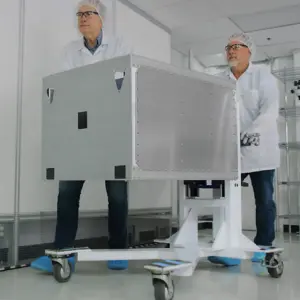
LeoStella and Hera Systems on Monday said they have formed a strategic alliance to manufacture small satellites and highlighted that they submitted a joint bid on the Space Development Agency’s (SDA) Tranche 2 Transport Layer (T2TL) program for low-Earth orbit data and communications satellites. For the T2TL effort, if successful, the companies will collaborate on the manufacture of Hera Systems’ Leoness Smart Bus spacecraft platform, which is space-proven. The companies said the partnership leverages LeoStella’s “highly efficient manufacturing capabilities.” LeoStella…

 By
By 











